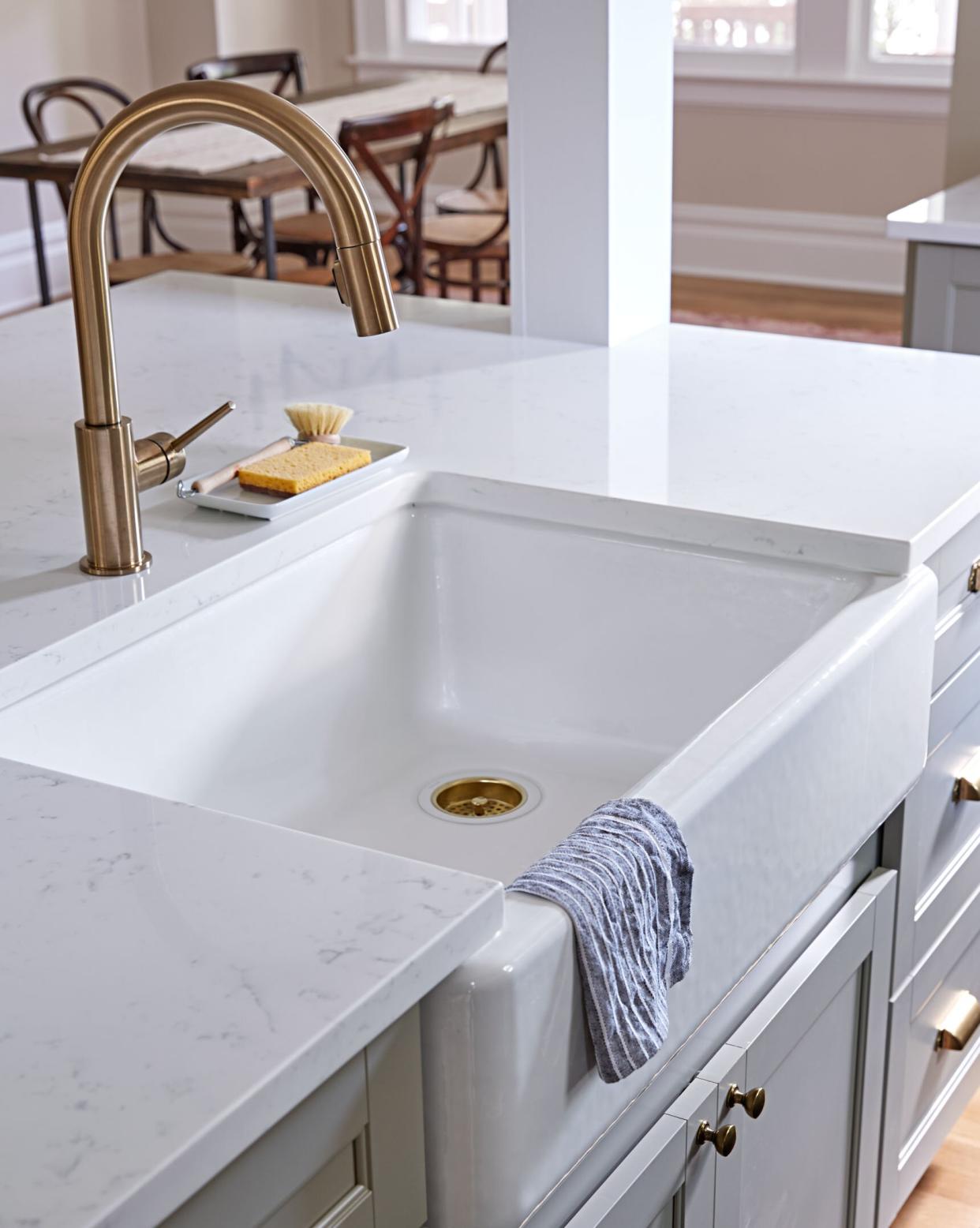These Surprising Warning Signs May Help You Catch a Leak in Your Home Before It Causes Too Much Damage

Kate Sears
In the grand scheme of home maintenance and repairs, plumbing is one of the trickiest to track. Since you often can't inspect your pipes and other water maintenance features, homeowners are rarely aware of deteriorating conditions until it's too late. More often than not, the most common plumbing issue that people run into is a damaging leak. According to the Alliance for Water Efficiency, the average American home loses between 2,000 and 20,000 gallons of water per year due to leaks. While some can be spotted-think dripping faucets and loose water heater piping-others might occur behind walls, beneath floors, inside appliances or in the foundation of your home.
One warning sign that your home may have an unseen leak is actually found in your water bill. Water could be slowly leaking out of a faulty pipe, not only costing you on your monthly utility bills, but possibly costing you even more in repairs later. An unusually high water bill is just one sign that it might be time to call a plumber. The untrained eye might breeze over visual signs of leaks in the home, but there are also a few auditory cues that piping may need repairs, too. Here, certified home and plumbing professionals to help us share the surprising signs that you may be experiencing a leak at home.
RELATED: HOW TO PREVENT AND REPAIR FLOOD DAMAGE IN YOUR HOME
Scan Your Walls for Water Spots
Andrew Helling, a real estate agent and full-time property manager at Wistar Group, says there's one obvious visual sign for leaking pipes: water spots, which appear beneath the source of the leak. "Drywall usually turns yellow or light brown when it's wet, and it's easy to spot," he says. "If you see brown spots on the ceiling below the bathroom, or below a room containing a sink, you likely have a water leak."
Low Water Pressure
This is often the first warning sign that a leak might be occurring. "An unexplained drop in water pressure may mean there is a leak in the system," warns Rick Yohn, senior vice president of franchise at Benjamin Franklin Plumbing. While clogged pipes and faulty valves on water heaters may be to blame for water pressure, a holistic diagnostic of your system is needed in this case. Yohn says at the very least, you'll fix your water pressure issue, and potentially stop a leak from ballooning into more damage.
Listen for Drips
You don't need to see water damage to get clued in about leaks, says Max Rose, a certified plumber and the owner of Four Seasons Plumbing. Try turning on the shower or tub before heading into another room and listen closely. You may actually hear a drip in a nearby closet, as these kinds of leaks are audible. "A 'shhhhh' or hissing sound is another indication of a hidden leak," Rose says. "This could be a leak in the wall or ceiling, a running toilet or faucet, or a leak underground."
Check Under Your Sink
Helling says that plumbing traps, the U-shaped bend often seen in a bathroom's plumbing, are frequently the source of internal leaks in a home. If you have a vanity or an under-sink cabinet covering the sink's plumbing, you'll immediately know if the plumbing trap is slowly leaking by spotting warped wood in this area. "Catching a slow drip can save you thousands because with limited airflow below a sink, mold can grow quickly if left untreated," he says.
RELATED: HOW TO PREVENT FROZEN PIPES IN YOUR HOME
Wobbly Shower Heads
"A common source of leaks is behind the arm to which the shower head attaches," Helling says, sharing that when people frequently rotate or move their shower head, the motion may loosen the connection between the arm and the pipe itself. "This can cause a leak that can go undetected for months." Asking a certified plumber to secure this connection can prevent any slow leaks in the walls surrounding your shower.
Lingering Odors and Smells
Clean water pipes are not the only pipes that can fail in your home-Rose says that sewerage pipes can crack and leak inside your bathroom as well as in the exterior areas surrounding your home. If you use the toilet and immediately notice an off-putting odor after flushing, it's time to call in professionals. "The smell of sewer is also a strong indication of a plumbing leak and should be dealt with as soon as possible," he says.
Overactive Water Meters
A final test for leaks hinges on your home being equipped with a water meter. "If you are on a city water system, locate the water meter and open the lid so you can see the dial," advises Richard Hart, owner and operator of Harts Services. Ensure that no one is using water and that all of your faucets and appliances are turned off. "If the dial is spinning, you have a leak somewhere," Hart says.

